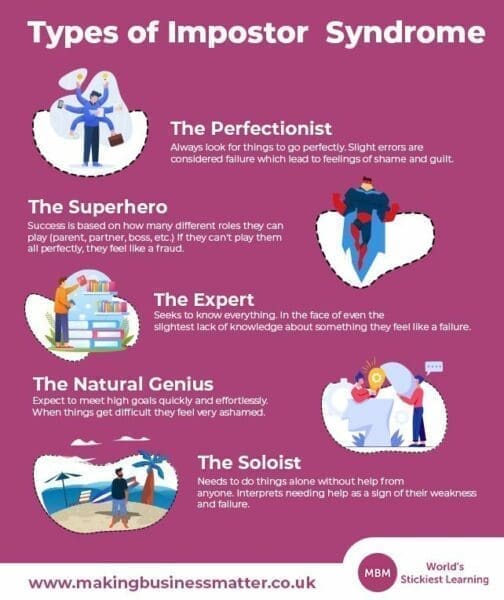Ever Felt Like a Fraud in Your Own Body?
Today’s topic is impostor syndrome-and is one I can personally speak on. Are you good at meeting new people? Do you find comfort in making first impressions or having small-talk conversations? If the answer to either of those is ‘yes’, please write an article, make a video or shout from the rooftops how on earth you do it. Find a way to share your secrets because I guarantee, at least 98% of people thought; ‘No, I definitely do not!’.
This would be a completely normal response. No one likes meeting new people.
Now, imagine the situation in which you are allocated a location, along with many other people, and you have no choice but to stay with those people for at least, let’s say a year. Initially, you’ll try your hardest to like them, even if their presence makes you want to scream into a pillow. However, you don’t have to be friends with all of them. In fact, you don’t even have to meet all of them. But… your time at this location is going to be pretty dreadful if you don’t at least befriend a few. Have you got it yet? Welcome to University.
Freshers Week
During my first week of University, I found myself, like many others, in a process of what seemed like endless small-talk interactions with people that I knew I wouldn’t be friends with long-term but felt I should speak to anyway because ‘it’s fresher’s week’. In these situations, my ‘Impostor Syndrome’ ran wild. It’s like they simply awaken the paranoia beast and I cannot, for the life of me, get rid of him. The person I’m speaking to would never know that, though. Of course.
I met two of my best friends in fresher’s week. They’re both huge football fans and I… am not. I needed them to talk to me, and needed them to want to talk to me as I was ferociously aware of the fact I’d now been at this party for a whole 23 minutes and had made no verbal contact with anyone. So, I worked to drag a postage-stamps-worth of football knowledge into a 15-minute conversation. As it was, I think they bought it. They know now, of course, that I know absolutely nothing about football but it was clearly enough to get me through.
The point of this story is that the entire time, I was worried something silly that they’d catch me out and realise that I was, in fact, clueless. I felt like a fraud. I felt even worse because it worked, too. Impostor Syndrome. Plain and simple.

What is Impostor Syndrome?
The Impostor Phenomenon, as it’s more professionally known, is the experience in which you feel like your success is due to luck or error rather than your own skills and ability. It stretches beyond this, too. The phenomenon makes you feel like a fraud, that you’re not authentic or genuine and what you’re saying sometimes isn’t driven by solid evidence or knowledge. Of course, people experience this in different ways and in different situations.
When I first read the online definition of Impostor Syndrome, it clicked somewhere deep in my mind. I felt for the first time like there were words to describe what I was feeling.
For anyone who may be in the same circumstance, read this:
“Impostor syndrome (IS) refers to an internal experience of believing that you are not as competent as others perceive you to be. While this definition is usually narrowly applied to intelligence and achievement, it has links to perfectionism and the social context.”
Hopefully, that clicked for you too, or it can click for someone you know. If you’re unsure, or that specific definition doesn’t quite tell your whole story, take the test.
If you scored:
- 40 or less, you experience ‘IS’ infrequently.
- 41-60, you experience moderate ‘IS’, most likely in specific situations.
- 61-80, you most likely experience ‘IS’ on a daily basis and find it difficult to navigate.
- Higher than 80, you’ve got it bad, and that’s OK. Don’t worry about it at all. I scored 75 and here I am writing an article that’s supposed to help…
Anyway…
Now you’ve taken the test and probably realised that you are one of the 70% of the population that experience this to some degree, I’m going to do two things. Firstly, tell you why. Secondly, provide some clarity on how common this really is and people you look up to that have it too.

Sticky Learning ® is 7 times more effective than 1-day training courses. Plus, you will get a Chain of Evidence proving your Return on Investment. Discover soft skills training that changes behaviours long term.

Why do People Experience This Phenomenon?
There’s not really a single answer. Something that’s so widely experienced that 70 percent of people would relate to that definition has the canvas to fold and form into many different types of experience. That’s why there’s no one answer because everyone’s IS comes from a different place.
To explain at a more blanket level; our brains make connections in a certain way that increases the opportunity for this experience. Maybe you feel your grades were not satisfactory for your parents as a child, or that your siblings outshone you somehow. That breeds to the connection of, to be recognised and appreciated, I must perform. This sounds a lot more ‘PTSD’ than it actually is in real-world examples. Little things like this, however, can mutate into these impostor-type experiences later in life.
For me, I didn’t feel particularly like my grades were insufficient or that my sibling outshone me, but somewhere along the line, I must’ve made that neuro connection. The concept of ‘to be appreciated, I must perform’, must be why I find myself jumping at the chance to talk about achievements and aspirations when its brought up. But not making the effort to bring it up myself so as to not seem arrogant or get ‘caught out’. Thinking on things like this can quite easily reveal, to you, your cause for IS. It’s easier than you think. Just give it a little thought.
The other causes are generalised concepts like; hereditary personality traits or other childhood or early-life experiences. This is the case with any mental disorder of phenomenon, of course.
It’s Not a ‘Mental Problem’, it’s a Phenomenon and Tom Hanks Has it

An important distinction. Not because anyone else cares, but because your perception of your own mental experiences is arguably the most important step in changing them. The reason the word ‘phenomenon’ is so important, and ‘mental health problem/issue’ is so inaccurate is because IS is simply an experience. Mental health problems… are problems. Think more ‘de ja vu’ than depression. Big difference.
…and yes, he does. Mr. Hanks is on several lists of highly influential and famous people who report to have experienced intense impostor syndrome feelings. If you’ve been able to relate at all to any of this article, I think this will help:
Famous People who Suffer From Impostor Syndrome:
- Tom Hanks
- Ryan Reynolds
- Jodie Foster
- Emma Watson
- Barack Obama
- Lady Gaga
- Tina Fey
- Jennifer Lopez
- Robert Pattinson
- David Bowie
- Serena Williams
- Maya Angelou
- Kate Winslett
The list goes on, seriously. Sportsman, actors, actresses, public speakers, musicians. They’re all constantly in the public eye worrying themselves to death over whether they’re going to get ‘caught out’ for their achievements.
Kate Winslett said;
During emotional scenes, sometimes I feel like its really obvious that it’s fake and everyone’s going to realise I’m actually rubbish and they’ve cast the wrong person.
Get where she’s coming from?
Ryan Reynolds said;
I know I’m seen as a famous actor walking down the red carpet with an expensive tux on, but really I still feel like a freckle-faced kid still faking it til I make it.

Can you relate to that?
David Bowie said;
I feel sometimes like I am totally inadequate and I deal with it through excessive working because it makes me feel like my work is all that means anything.
Ringing any bells?
All these people have felt like frauds. They’ve all worried about people seeing it. It’s totally normal. The wild thing is that, when we’re talking about people experiencing IS, we’re actually talking about seventy in every hundred people… You’re odder if you don’t have it, than if you do. This is not the case with any other social-media-worthy mental phenomenon.
So, How Should You Deal With This?
‘Dealing’ with it is all you really can do. Impostor Syndrome isn’t something you conquer or overcome like depression or anxiety. It’s something you learn to understand, navigate and utilise. If you have impostor experiences, which hopefully you know by now, the first step is accepting the fact that it’ll never go away permanently.
If you scored towards the 70s or 80s in the test, there will be times where it gets easier. And if you scored closer to the 40s or 50s, there will be times where it’ll be absent completely. Either way, the absolute, number one, best thing you can do is be aware of it.
Upon the first read of the Impostor Syndrome definition, I felt instant, and I mean instant, relief. When you have problems that you can’t articulate, you think about them. The more you think about big scary things that you can’t talk about, they become bigger and scarier. All of a sudden, my big scary problem (that was only big and scary because I assumed I was the only person to have ever felt like that) became small and… not scary? I don’t know… cute? Anyway, the weight of the universe was lifted from me on the spot.
Now, I’m in a position where I must attend lots of ‘networking’ events. This means meeting a lot of new people, and worse yet, meeting lots of new people that are just like me and the work I’m aspiring to do. That second part can seriously aggravate your impostor syndrome, let me tell you. Although, after talking about my Impostor experiences and finding out that that’s what they are, those feelings can be disregarded.

You’re talking to someone new, trying to make a great impression and Mr. Impostpr creeps up on you. Before the grand discovery, you engage in conversation with him as he convinces you that the person you’re talking to knows exactly what you’re up to and will certainly expose you in front of the entire room. Upon knowing about IS and what it means/does, I simply tell Mr. Impostpr to f*** off. Bit harsh? I don’t think so. He’s not exactly been my friend up until this point.
How to Overcome it
Here are 6 things you can do to overcome impostor syndrome and then let’s talk about embracing impostor syndrome and why we should:

- Remind yourself of the facts – Salesperson selling well and beating your targets? This is your fact.
- Always helpful, is finding a way to share it with others. A mate down the pub…’I read about this impostor syndrome, and it means…’. Mate replies, ‘I think I might have that’. ‘Me too!’.
- Celebrate your success. If you did something well, tell people and they’ll celebrate with you.
- Recognise that you’re chasing perfectionism and, on some things, and stop. Sometimes it is ‘good enough’.
- Identify when it rears its head most and aim to change when it does.
- Share your failures because others will never be as hard on you as you are on yourself.
- Embrace it: Impost syndrome has its advantage. It drives you to be better. When others think that something went well, you think, how can I improve? Yes, that comes with its downsides, but it also comes with a want to be the very best version of yourself and being that person is so worth having.
Embrace your impostor and be fabulous!
The Upsides of Mr. Impostor’s Residency
I’m choosing to finish this article with some upsides of having Impostor Syndrome because I do truly believe that, once harnessed properly, IS can be a secret superpower.
The Secret Superpower
Take my football conversation with those couple of knuckleheads that I now call my best friends (among other things) for example. If I were to be in that same situation now, which we all often are, I would say a quick ‘hello’ to Mr. Impostor and just keep him watching from my shoulder. IS or not, when that conversation actually happened, I did manage to stretch my intensely lacking football knowledge to a decent conversation. And, again, they bought it at the time.
Having Impostor Syndrome makes you question if they bought it, but knowing you have impostor syndrome gives you the opportunity to question it and then reality-check your paranoia and realise it’s actually working! I’ve used this to my advantage many times since discovering I had IS. Give it a go. Trust me.
Relationship Enhancement
There’s a great TEDx talk with Michael Cannon-Brookes about Impostor Syndrome (click on the image below to watch). He mentions that he and his wife both have admitted that they struggle with IS, too. Surprising each other, they both found comfort in the knowledge. Both feeling like frauds to one another, sometimes, they’d naturally strive to be the person they thought the other person perceived them as. That’s an odd one to understand but re-read and it’ll make a bit more sense.

Due to the effort from both parties to be better for the partner (so as to not get their Mr. Impostor exposed) they ended up… yep, that’s it. Being better for each other. Simple as that. Talk to your other half and see what they say, you may find yourself having been in the most successful type of relationship this whole time.
Don’t fight Mr. Impostor, just make his room in your mental-house a bit smaller. Only let him come out when he’s needed and let him lock his own door when he’s not. Have a little faith, he’ll lock that door. Good luck.




